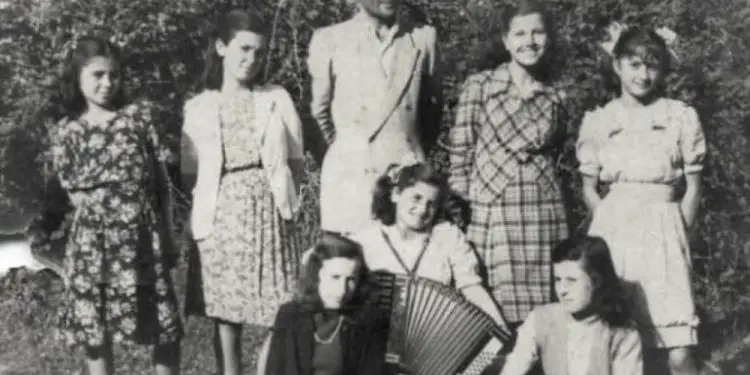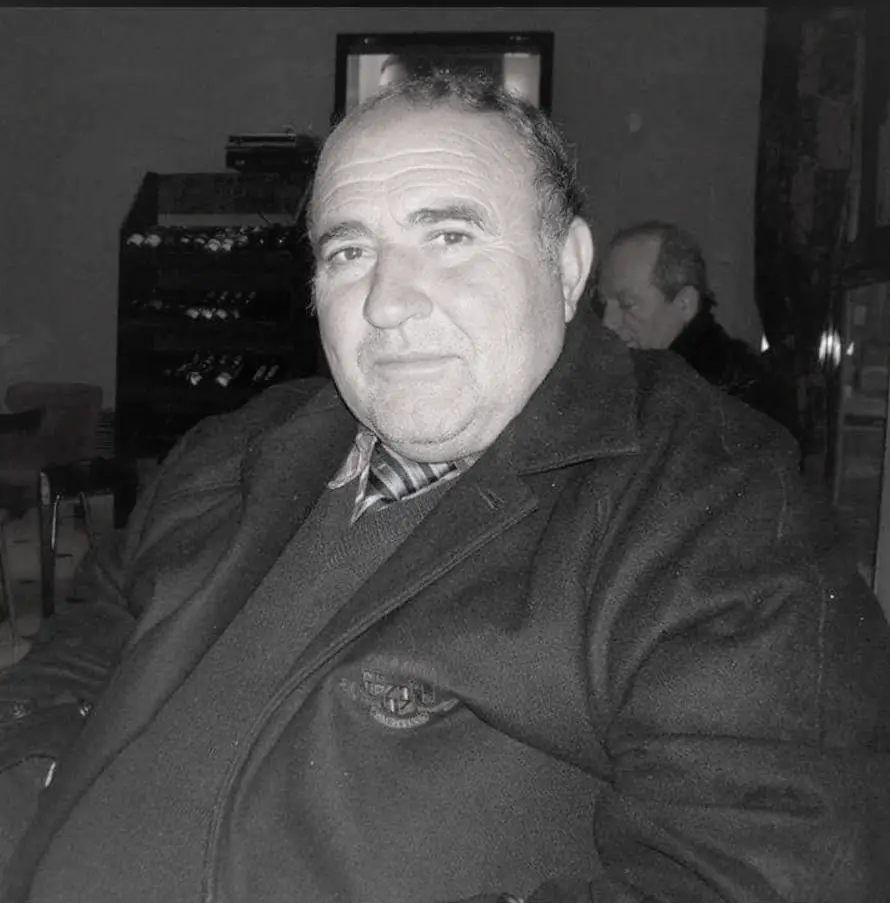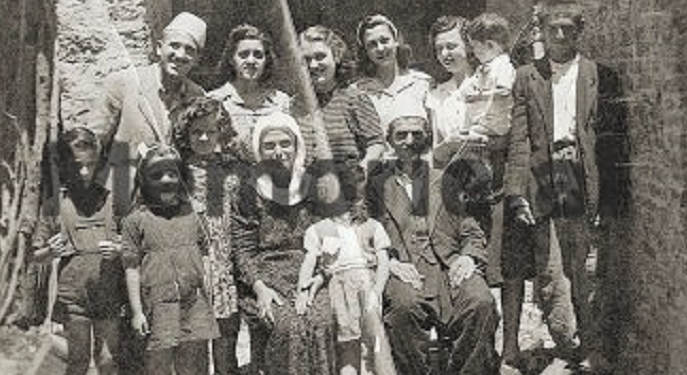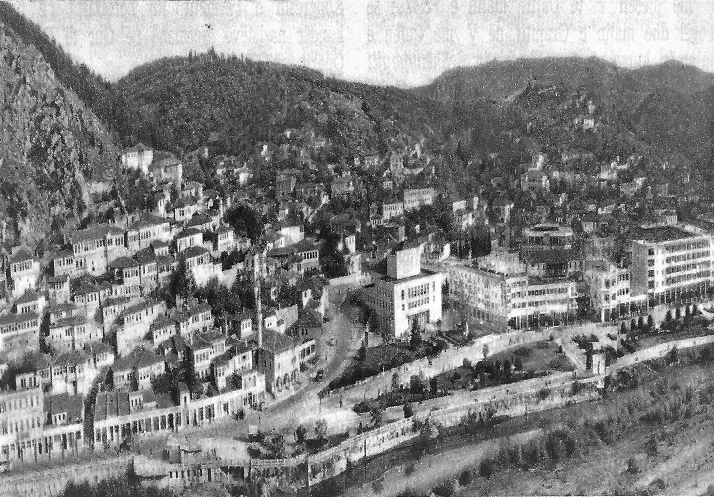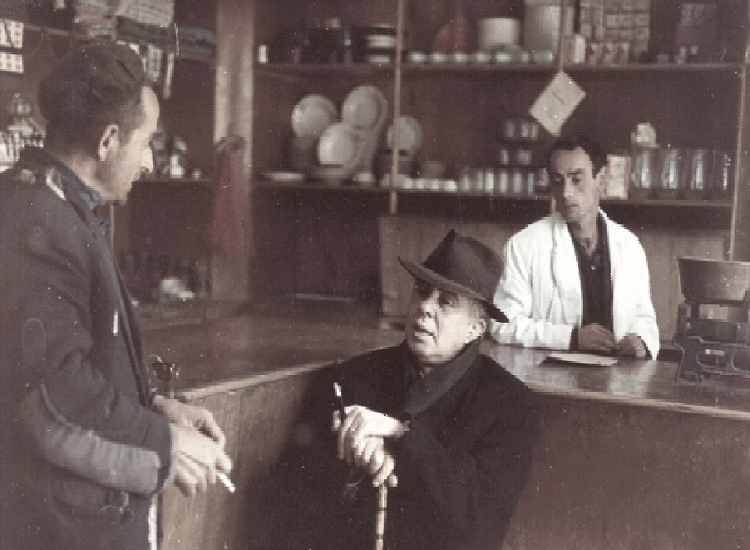By Dilaver Xhelili
Memorie.al / The over 2,400-year-old city of Berat is not just a museum city; it is a living testimony of an ancient hospitable civilization. Berata families, in addition to a culture already known for centuries, are also known for their warm and generous hospitality. During the years of the Second World War, Berata families opened their doors for housing families coming from across the borders. And precisely for the Jewish and Chamerian families who came to Albania.
Jewish families arrived in Berat at the end of 1942. This is what one of the residents of the new neighborhood, named Isuf Qolja, claims. The Jewish family of Yakov David Esher, consisting of five people, took shelter in his family. Even after so many years, the master of the house remembers everyone.
He remembers David’s son, the head of the Jewish family, and all the other members of the family, who left a rare impression on him. The Jewish family had come from Pristina, fearing a German occupation in the south of Europe. But this was not the only Jewish family sheltered in the city-museum.
In Berat there were also the Civeja, Drakoniku, Bukaroj, Xhufi, Zaganjori, Çipi families, living in Lagje e Re and “Murat Çelebi”, who warmly welcomed the Jews. Qani Çeveje’s family even released the entire two-story house with eight rooms to the Jews, and the owner of the house himself went down to a pair of small houses on the ground floor, which he had left when he entered the new houses.
The large Berata family was narrowed more in the former two rooms, to help friends who were looking for help and struggling for existence. Qaniu’s son, Shyqyriu, remembers that time well, even though he was very young. He says that 7 Jewish families who managed to escape the German massacre settled in his house. The Jews have left indelible impressions on Shyqyri.
How did the Jewish doctor H.L. serve the residents of “Mangalem”?
Other Jewish families settled in the Mangalem neighborhood of the city of Berat and precisely in the Vruhas family. The Jews who took shelter in this neighborhood were educated people with various professions.
The head of one of the Jewish families was a very good doctor. The elderly of the neighborhood “Mangalem” say that this neighborhood became a health center where residents were visited by a Jewish doctor in secret.
The Jewish doctor, H.L., went daily through the houses of Berata, visiting the elderly as well as any sick person who needed him. He secretly passed through the streets of the neighborhood in order to escape the predatory eyes of the Germans who were in this city. Residents say that the Jewish doctor managed to save a child who was in serious condition.
According to them, the time marked 24.00 in the evening of one of those days, when the German invaders had just landed in Albania and arrived in Berat. “The weather was bad. The rain had not stopped and the storm was powerful. The child who lived in the Helvek neighborhood was burning from the high temperature,” the elderly said.
The Jewish doctor, as soon as he found out about such a thing, helped by the complete darkness and bad weather, to escape from the German siege, goes to help the child who was fighting with death. This was an act that the Jewish doctor performed in Berat and that won everyone’s sympathy. Thanks to that, he became very well-known and popular throughout the city of Berat.
His help continued for a long time, until he left Albania for his country. According to elderly residents, the Hevlek neighborhood, where the doctor saved the child from death, sheltered 6 Jewish families. According to archival documents, it appears that 20 identified Jewish families settled in the city of Berat during the War.
According to the residents, there may have been other sheltered families, but who are not documented, since under the conditions of their arrival in Albania, there could be no question of registration. Isuf Qolja, remembers: “Jakov often said ‘even the kapos should not sing in the yard”.
The hospitality and care shown by the Berata families, for housing and keeping the Jews
It is worth noting the hospitality and care shown by the Berata families for housing and keeping the Jews, having on their shoulders the great danger that was threatened by the German Nazis. When the German forces entered Berat, on November 15, 1943, almost all Jewish families did not leave, because they felt safe in the houses in Berat.
So even though the city-museum was full of German invaders, during the 10 months that the Jewish families stayed in the city, none of them were discovered by the German invaders, not harming any of them.
In the afternoon of September 12, 1944, the German forces under the pressure of the partisans left Berat and were deployed at the Hasan Bey Bridge airfield. After that, one afternoon in September, the German Nazis fired artillery at Berat for more than half an hour.
Berata citizens, who thought that this attack was a warning for another attack by infantry forces inside the city, left their homes and fled to the suburbs to protect themselves.
Isuf Qolja, together with his family, left for a friend in the village of Zhogan, while Qani Cebeja went to the village of Polikesht. But these two noble Berat families, even though they abandoned their homes, did not abandon the Jewish families they had sheltered.
They took them with them to friends’ houses. The Berat families returned to their homes only when the German forces were expelled from Kuçova and Ura e Hasan Beut (“today Ura Vajgurore”), on October 18, 1944. Residents claim that the other Jewish families were not abandoned by the Berats either. .
The elderly remember that the Jews were distinguished for the qualities they had: wisdom, correctness and honesty. They survived. They worked on their own to make a living. Someone sold some tape that he had brought with him, others like street vendors sold sugar products, while educated people, doctors and pharmacists, served the whole city.
Women sewed quilts and took orders for handicrafts. Jewish families fled Berat after the liberation of the country at the beginning of 1945.
In the Holocaust museum in Israel, on the face of a large stone, the names of 20 Albanian families from Berata, who sheltered Jews during the Second World War, are engraved; this evidence highlights the positive values of the Albanian people, hospitality and generosity. Memorie.al




